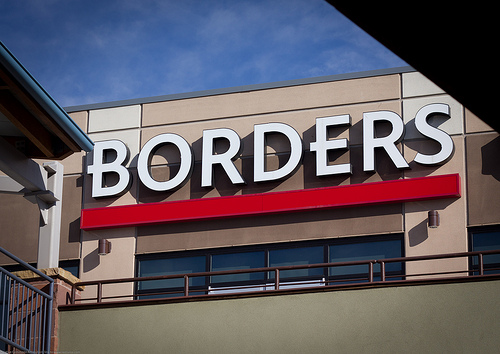Borders Files for Chapter 11 Reorganization

A press release cited poor sales and heavy debt as the reason for the Michigan-based company’s filing. The reorganization plan calls for the closing of nearly a third of the bookseller’s 642 stores nationwide. Twenty-one Southern California stores are among the 200 underperforming stores that will be closing in the next several weeks. A list of store closings can be found here.
So, are e-books to blame for Borders’s financial woes? According to an April 2010 New Yorker article that heralded the announcement of Apple’s iPad, e-books only represented three to five percent of all book sales in 2009. While that percentage sounds small, the number showed a 177 percent increase from 2008 e-book. Amazon, the company that started the e-book craze with the release of the Kindle, sold more e-books than hardcopy books in the second quarter of 2010 and Amazon’s e-book sales continue to grow. A customer can purchase an e-book, whether it is on the Kindle, the iPad or the Nook (sold by Barnes & Noble), for about half the price of the hardcover version.
Some experts think Borders’s loss could be Barnes & Noble’s gain. But Barnes & Noble is not without its own problems. In July 2010 the company reported a weak financial outlook. Then-newly appointed CEO William Lynch said the company planned “to redirect a significant portion of its financial resources toward investments in technology, sales and marketing.” The bookseller’s finances have rebounded since last summer and its stock has risen more than five dollars a share.
While there is no question about the popularity of e-books, one thing is still unclear – can companies make a profit from e-book sales? Amazon actually loses money on each e-book sale. Amazon typically pays the publisher around $13 per e-book and then turns around and sells the e-book to a customer for about $10 – a three dollar loss per e-book sold. However the company does make a profit on sales of the Kindle.
Amazon does not appear to be going away any time soon, Barnes & Noble seems financially stable for the moment, as for Borders, only time will tell if the bookseller can recover and remain in business.
Reach Christine Detz here



